American Psycho (2000)
/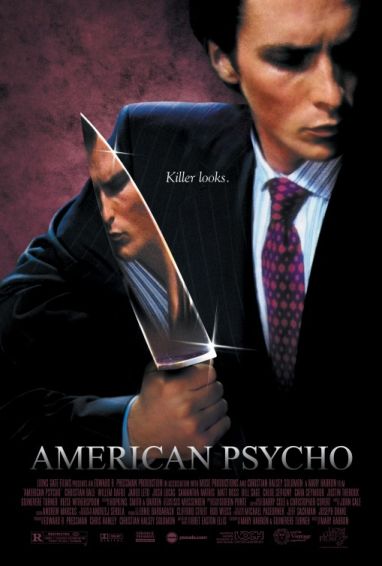
(spoilers ahead)
American Psycho is one of those impossible book adaptations that you wouldn’t anyone who knows the book expect to even consider. That book is insane! Mostly in a good way and in a very disturbing way for the rest of the time. But Bret Easton Ellis knows how to write. The movie is relatively harmless in comparison and while it might not be completely successful, it is a worthy attempt that captures some of the spirit of the book. The direction by Mary Harron (a woman!) is excellent and the use of excerpts from the book works well. And Christian Bale of course, he completely sells the movie by his extraordinary performance. But the movie drags for a while in the middle because it doesn’t know what to do after the main jokes are made but the mayhem is not about to start yet, which bored me. Still, the movie, like the book (which I admire but never want to read again) made some great points about society and capitalism we can look at here.
The basic premise of the movie is simple enough: capitalism and societal rules turn everyone into emotionless jerks who care so much about their outside, they forget what their inside looks like. You have to get rid of the notion to like any of the characters because that’s impossible. They all sit around restaurant tables talking about names and products and saying absolutely nothing. In an opening monologue by the main character Patrick Bateman (Bale), we hear all the superficialities that he cares about, his workout, his face, his apartment, his diet. No personality whatsoever and this works very well in the movie as it did in the book. We never get a sense of any emotion in Patrick Bateman. But, and this became more apparent to me in the movie, also not in any of the other characters he’s around. They all embody the definition of shallow, empty shells of consumerism and we don’t care what happens to any of them, no matter which great actress or actor plays them. The comparison of business card is surely the most symbolic moment for that view (and one of the funniest ones). The only exception might be his secretary Jean (Chloë Sevigny), but she willingly gives up or ignores her emotional foundation to fit in, too. She doesn’t achieve anything with her more introvert character.
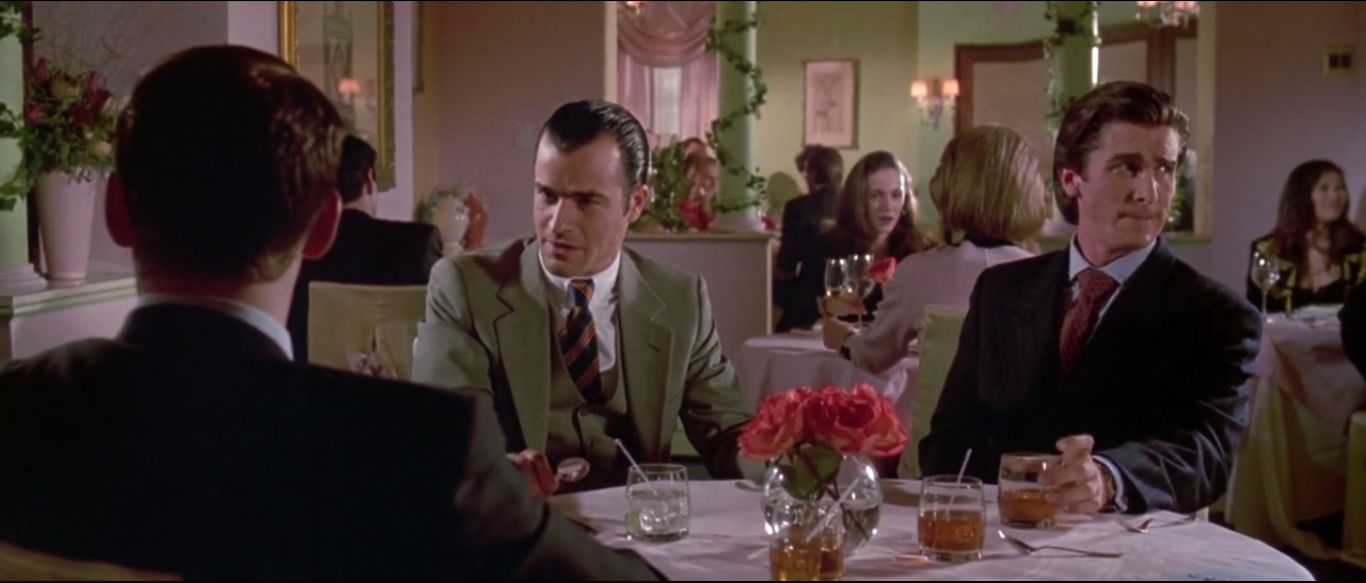
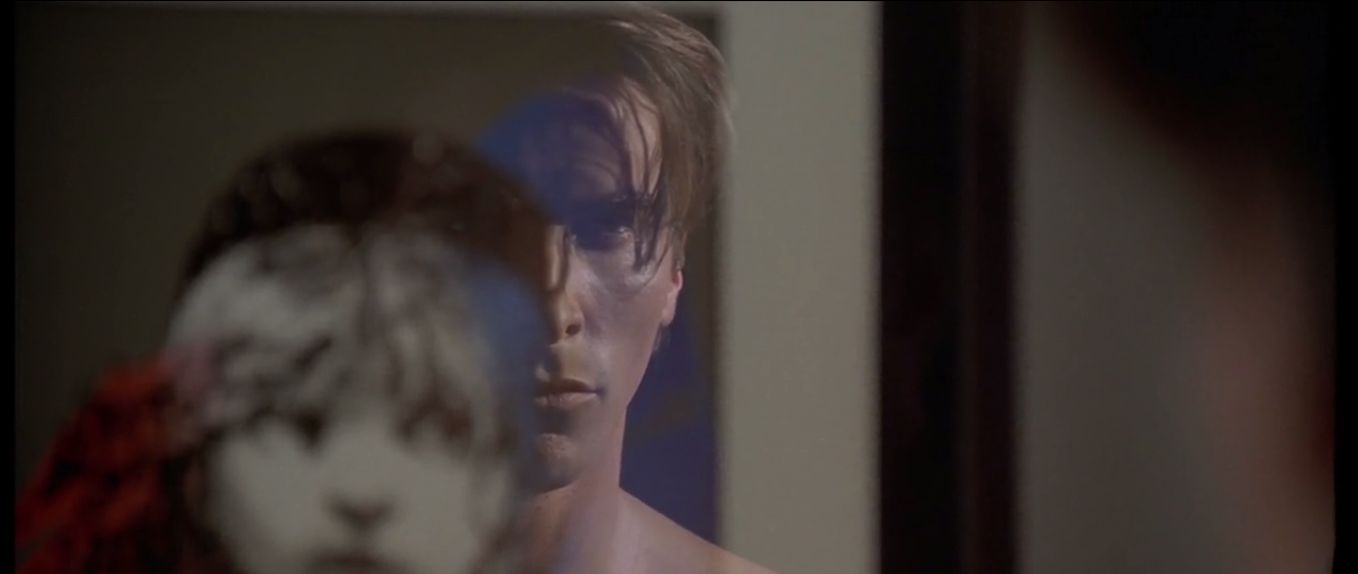
But there is a price to pay for all this denial of the self. Courtney (Samantha Mathis) escapes into medication. Timothy (Justin Theroux) escapes into drugs. And Patrick Bateman? Depending on your point of view, he either escapes into fantasies of murder and torture or he actually kills people on a regular basis. What is so interesting about him is that he needs something extreme, the need to fill his inner void is so strong that nothing “normal” suffices. We see him watching porn, but he doesn’t masturbate, he barely looks at it because he is too numb to feel anything. His first murder shows some anger because his homeless victim is a ‘loser’, but it’s clear that it doesn’t help him as much as he hopes. And he is aware that he might be crazy, as a short monologue after that first murder shows:
I have all the characteristics of a human being. Flesh, blood, skin, hair. But not a single clear identifiable emotion. Except for greed and disgust. Something horrible is happening inside of me and I don’t know why. My nightly blood lust has overflown into my days. I feel lethal. On the verge of frenzy. I think my mask of sanity is about to slip.
I don’t remember if this is from the book (apparently it is), but I’m surprised how clearly everything is spelled out here. The only thing that is never explained is where this ‘blood lust’ comes from. But again I would argue that this desire to feel something, anything, leads him to extreme behavior or thoughts. If the standard life isn’t enough to make him feel, he needs more: porn, prostitutes, cocaine. But if that still doesn’t make him feel anything, he goes over the edge: extreme sex and extreme violence.
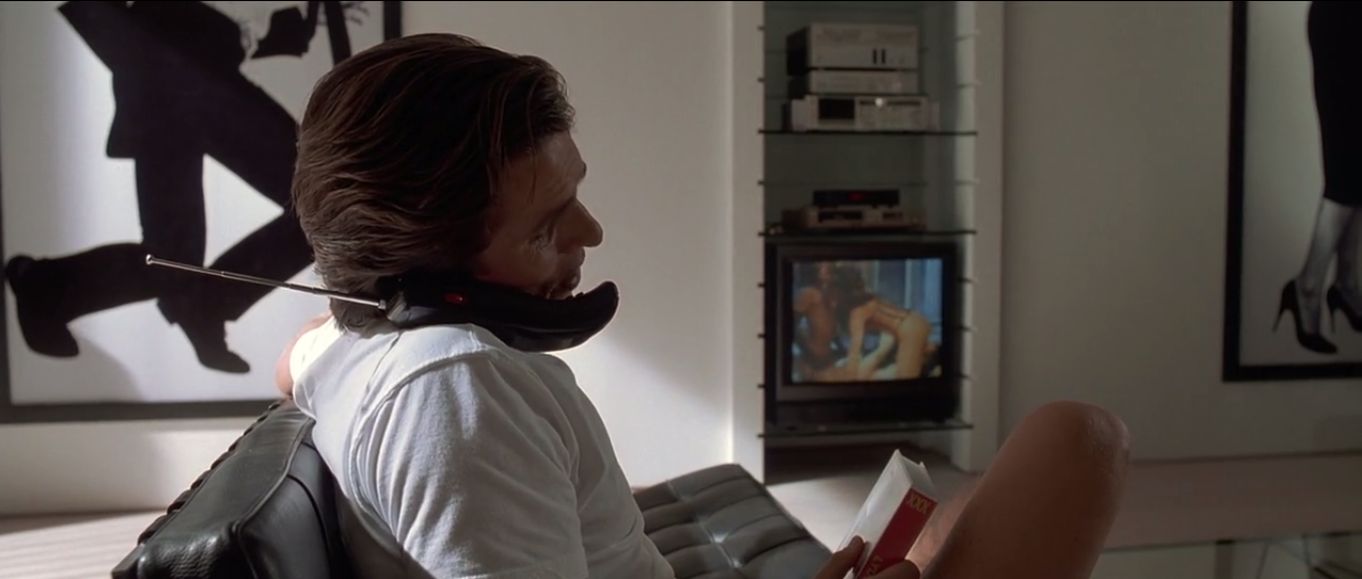
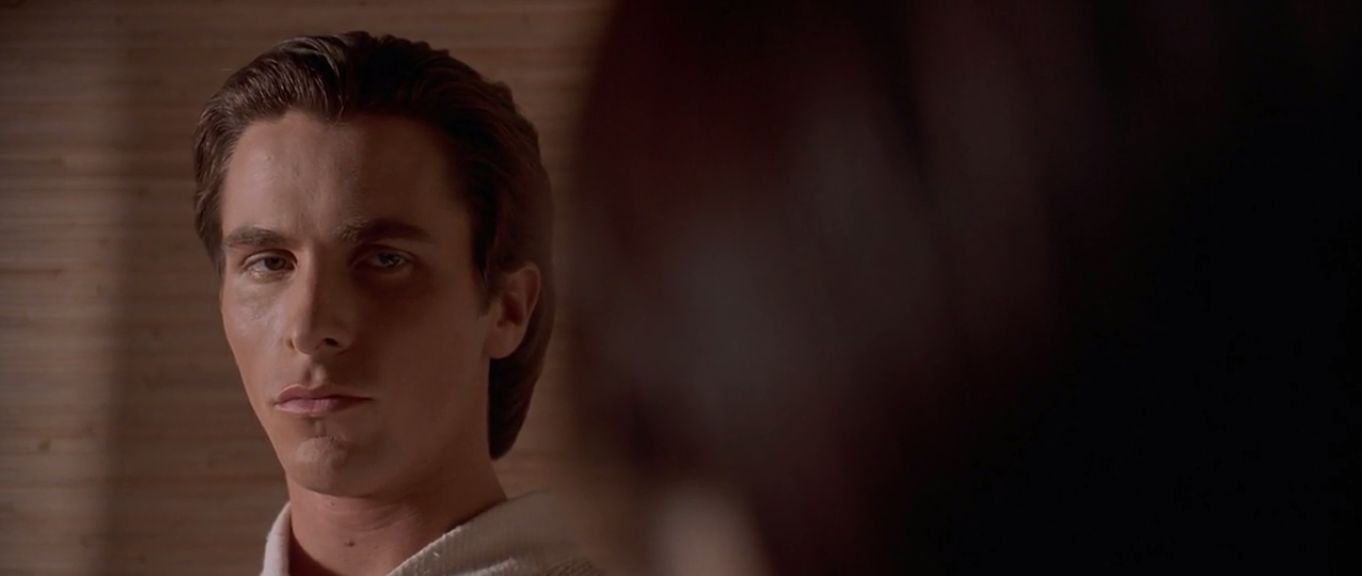
The book is more successful in showing the extremes to which Bateman goes, insofar as it almost becomes unreadable for all its cruel details. The movie of course doesn’t show as much and relies more on showing Bateman’s thoughts. There are only two scenes where he enjoys killing. The first one is more a comedy and doesn’t even seem so brutal in its depiction. The second one is tougher to watch and walks a thin line between showing how he enjoys being cruel to two poor women and also showing that they suffer. I don’t know if it really works because the violence is at the same time slightly comedic and nasty. And because the scene is so singular, its purpose becomes less clear. The book makes the violence seem superfluous, it clearly becomes as pointless to Bateman as anything else he tries to do. In the movie we only have that one scene that is so horrific, making it seem like a highlight for him, which maybe makes the scene look like a “success,” as if we should say: “Finally!”, despite all the terror and disgust we might feel, but because of all the teasing of violence we got before.
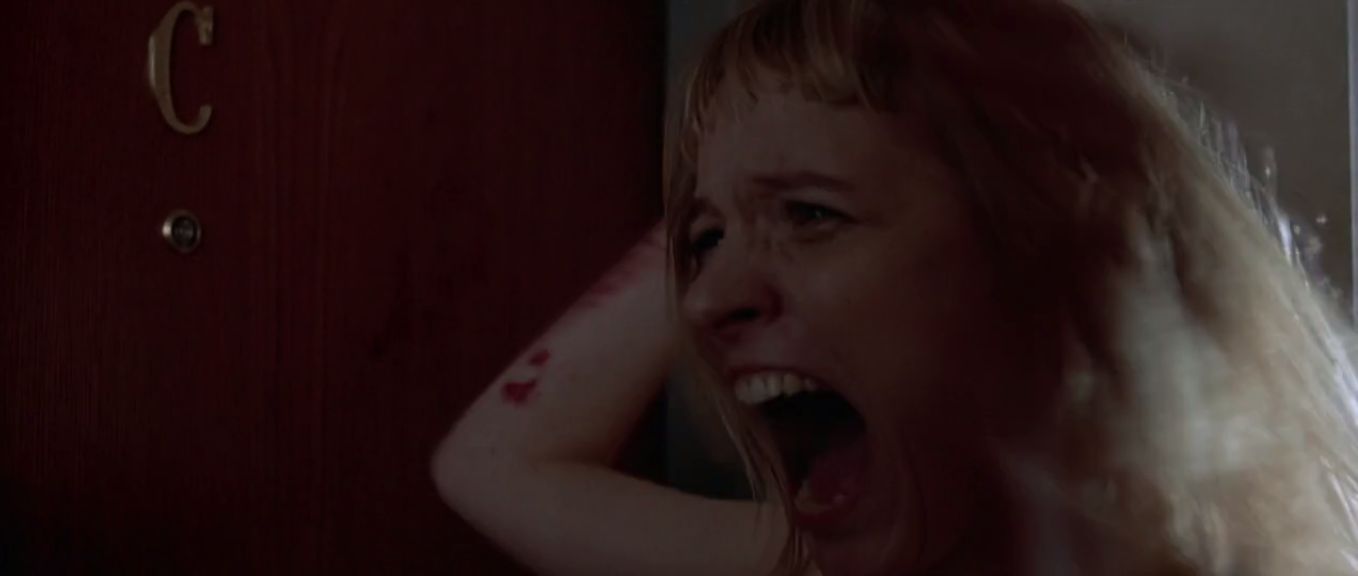
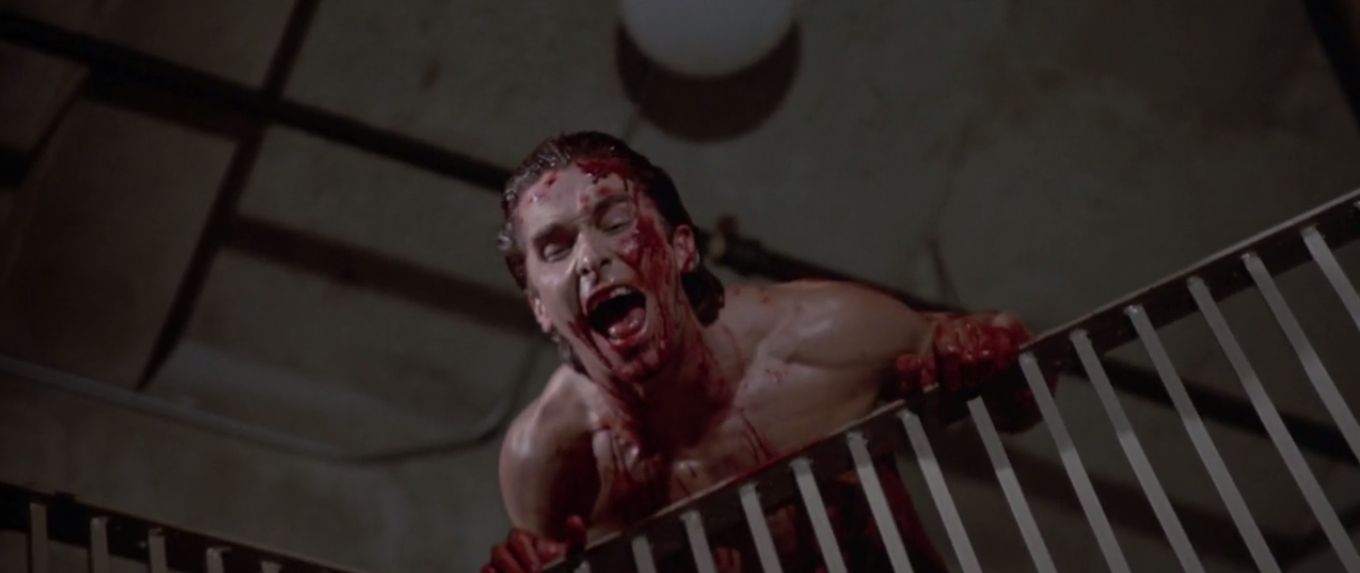
In the end, there is the ambiguity if everything we learned about Bateman is actually true and I also don’t think the movie does successfully pull that off, again because there is so little actual violence in it. And it’s also never clear if we are actually supposed to think it’s just happening in his fantasy. It’s too ambiguous in its ambiguity. But apart from that, I think the ending is the best part of the movie. The Reagan speech, Bateman’s laughter and his thought that ‘inside doesn’t matter,’ the “This is not an exit” sign (alluding to the book’s last words). He realizes that in this society you can survive by just having an outside, by being an appearance. It might make you crazy, but also successful in the terms that society dictates. His final monologue and the way Mary Harron films the scene are more successful than almost anything else in the movie.
There are no more barriers to cross. All I have in common with the uncontrollable and the insane, the vicious and the evil, all the mayhem I have caused and my utter indifference toward it, I have now surpassed. My pain is constant and sharp and I do not hope for a better world for anyone. In fact, I want my pain to be inflicted on others. I want no one to escape. But even after admitting this there is no catharsis. My punishment continues to elude and I gain no deeper knowledge of myself. No new knowledge can be extracted from my telling. This confession has meant nothing.
This sentiment speaks volumes about how many people feel after being socialized by our culture. The indifference towards others. The willingness to cause pain. The feeling that nothing means anything, that there is no way out. And of course he is wrong. It has to mean something, or there would be no novel or movie. If we are willing to look at this character and see that he is not an extremist, who has nothing in common with us. To see that his desire for extremes is so present in our culture, this search for something meaningful that often leads to pointless and mind-numbing endeavors. Patrick Bateman symbolizes all of that, the escapism, the addictions, the misogyny, the hate, and the terrible void that so many of us feel in this society, always looking for a way to fill it.
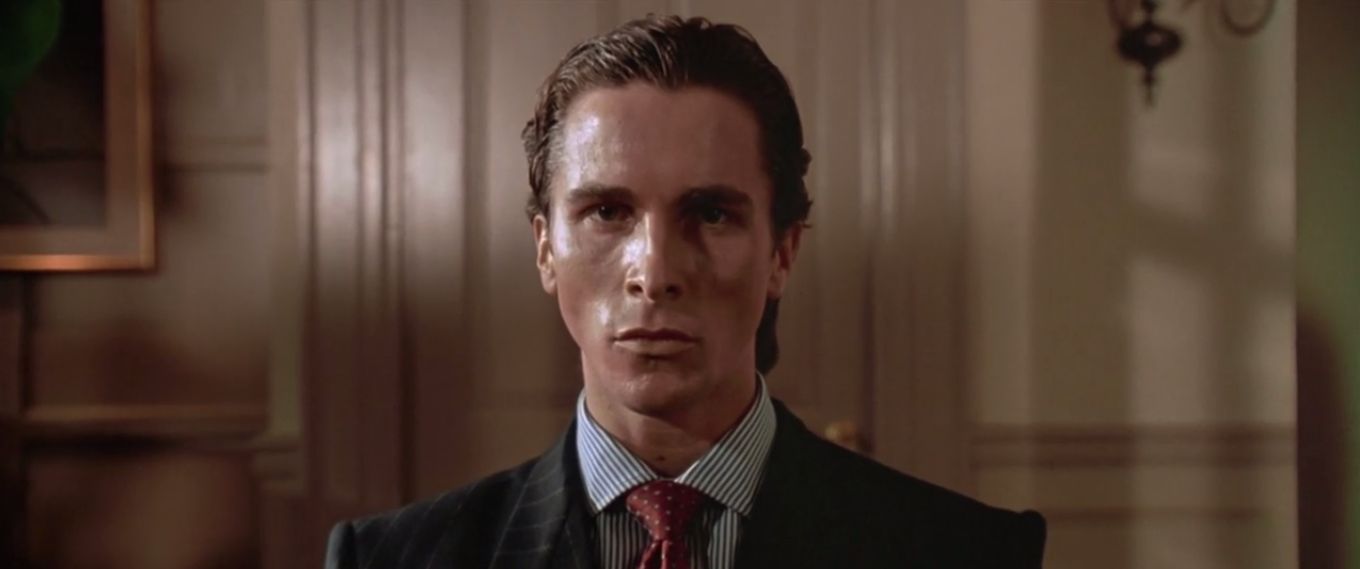
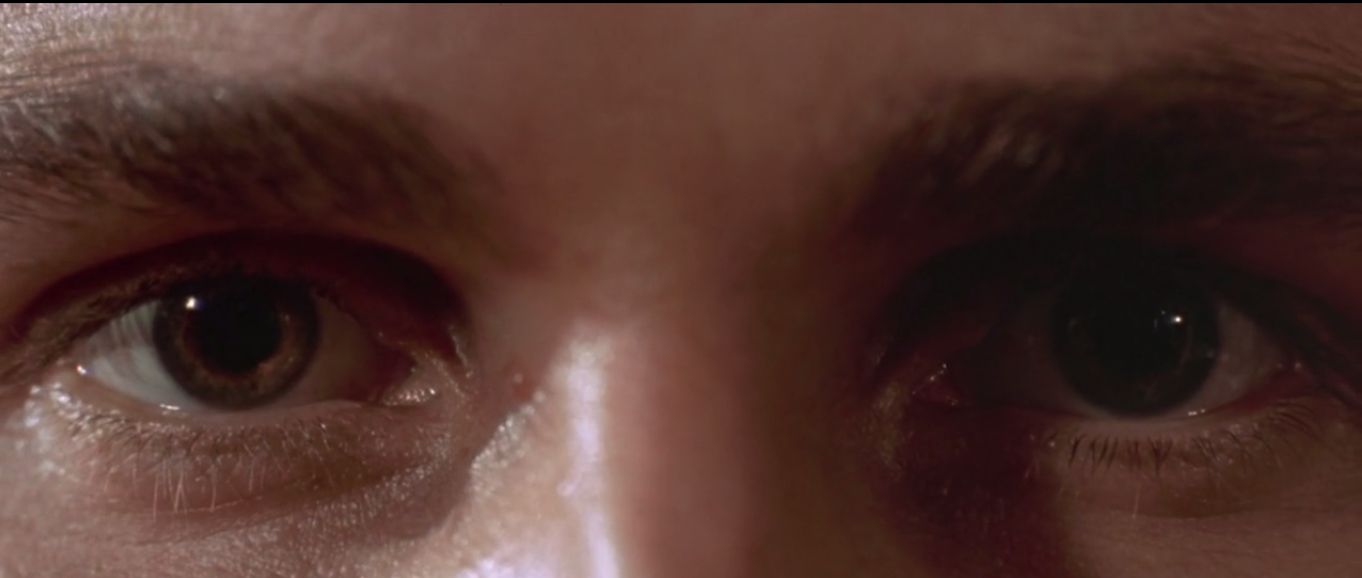
Tried to save myself but myself keeps slipping away - Nine Inch Nails, Into the Void (2000)
